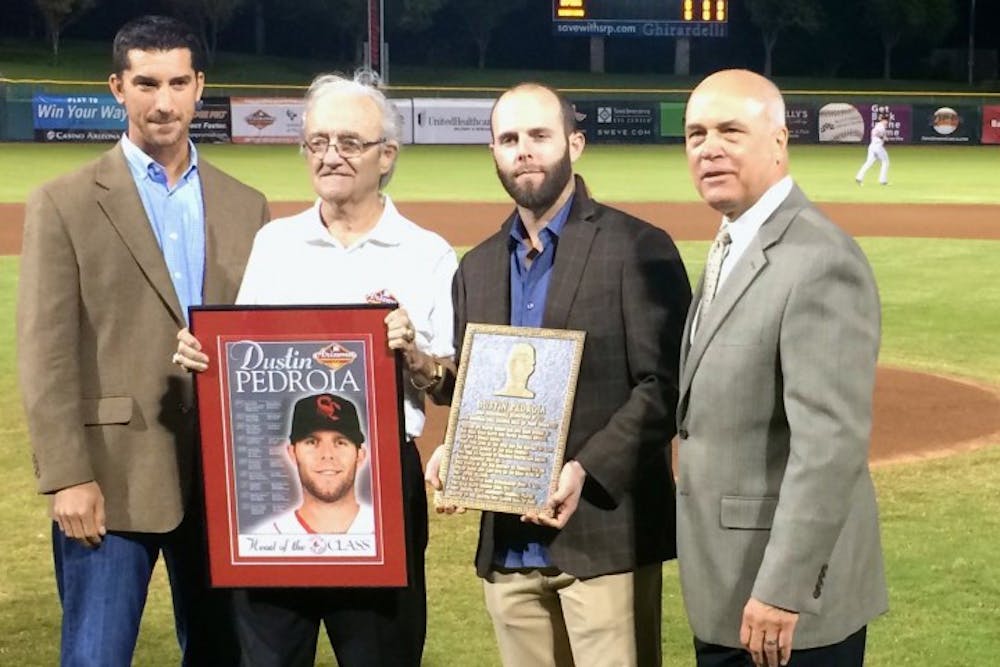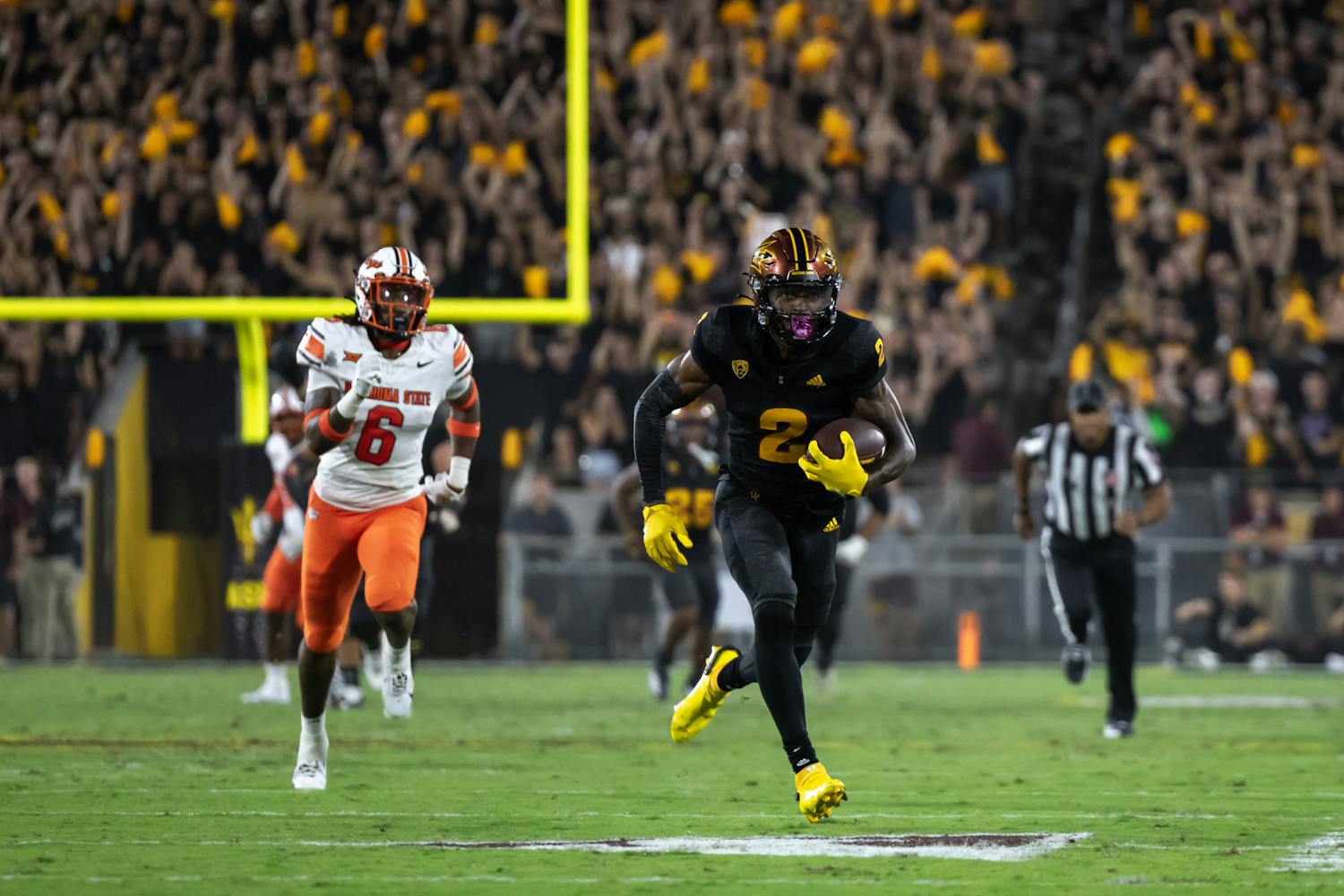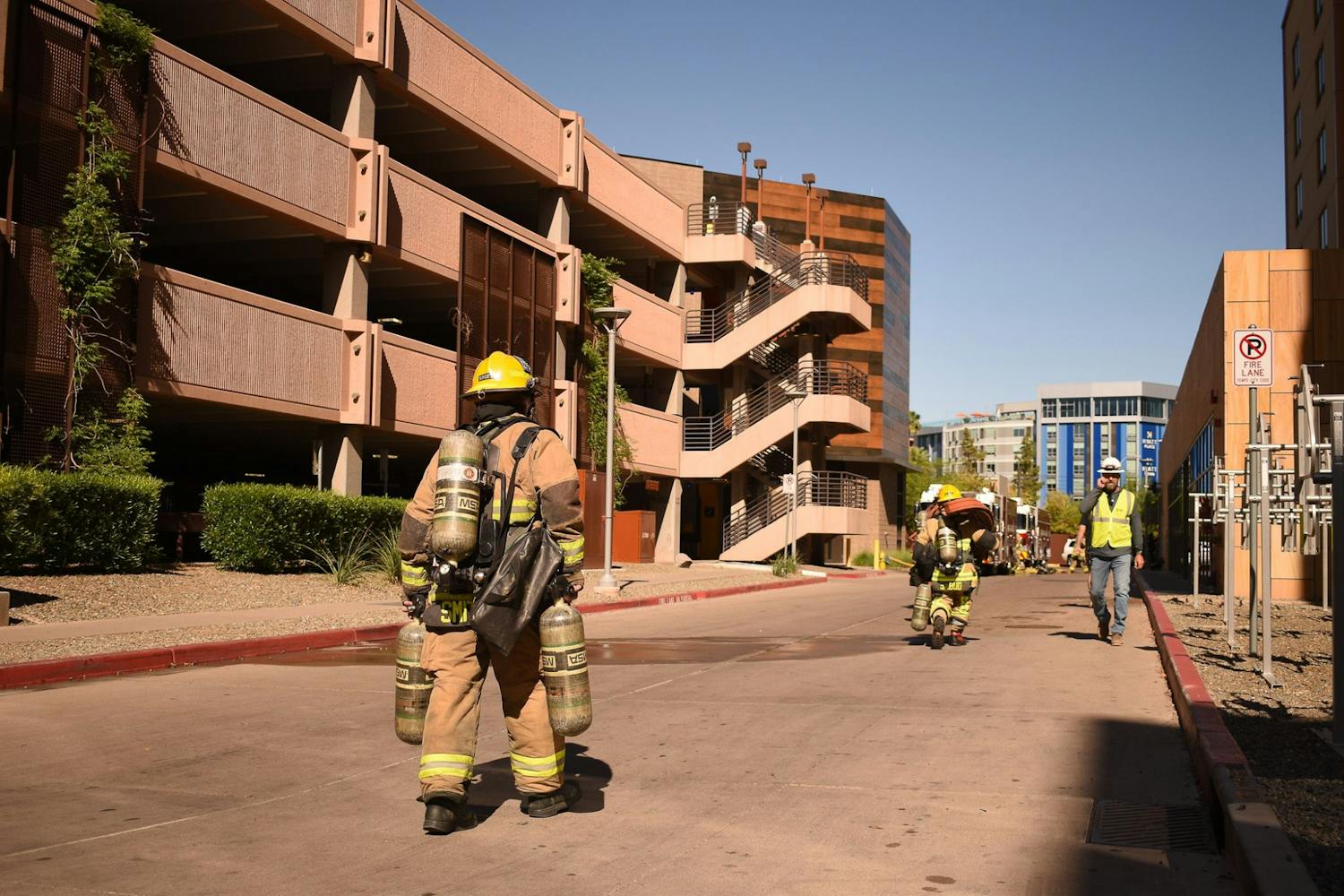Over the years, Sun Devil baseball has been known to produce some of Major League Baseball’s (MLB) greatest talents. From Reggie Jackson to Barry Bonds, ASU has seen 105 players make it to the big leagues.
Red Sox second baseman Dustin Pedroia is certainly one of the most notable MLB Sun Devil alumni. In his time in Tempe, Pedroia hit a batting average of .384 and reached on base over 46 percent of the time.
After his three spectacular seasons with ASU, Pedroia made his Major League debut in August 2006.
“The people following (Minor League Baseball) were very high on him,” Bob Ryan, former sports columnist for the Boston Globe, said. “They thought he was a very interesting prospect and there was a lot of anticipation about him coming in.”
After making his debut, Pedroia started at second base over veteran infielder Alex Cora in 2007 and started the season off poorly.
“He did not get a good start and at the end of April ... was hitting under .200 I believe,” Ryan said.
On May 27, 2007, Pedroia finally broke through the cracks.
“There was an epiphany moment (for Pedroia), there’s no question,” Ryan said. “There’s this at bat he had against Eric Gagne that was a long, long, long at bat that culminated into him hitting a home run. If you want to start the date of him beginning to become Dustin Pedroia, at least as a batter, in the Major Leagues with the Red Sox, you would start with that at bat.”
Pedroia went on to win Rookie of the Year while the Red Sox won their second World Championship in four seasons. The following season, he won the American League Most Valuable Player Award.
In his career, Pedroia has appeared in four All-Star Games and has won four Gold Glove Awards.
Even with all of the spectacular accolades he has earned in his career, the Red Sox second baseman still has one noticeable flaw to his game: injuries.
“The only thing has been injury, and when he has been injured as would be the case with almost anybody, there’s a lack of production,” Ryan said.
Injuries aside, it is is tough to debate whether or not Pedroia is the greatest second baseman to ever dawn a Red Sox uniform, especially when considering the career of former Red Sox second baseman Bobby Doerr.
“If you look at Doerr, Doerr had more sheer power,” Ryan said. “He was an RBI guy, I think he drove in over a hundred (RBIs), six times.”
From 1937 to1951 Doerr was a nine-time All-Star who was inducted into the Baseball Hall of Fame in 1986. As to whether Doerr was better or worse than Pedroia, the debate is certainly a viable one.
“It’s a coin flip, it seriously is,” Ryan said.
However, unlike Doerr, Pedroia has an MVP and two World Series Championships to his name and has gone up against a greater field of competition than Doerr ever did.
Asian and Latin American players did not make their mark in the Major Leagues until the 1990s, the first African-American player did not appear in the Majors until Doerr’s 10th year in the league and in two of Doerr’s seasons, a chunk of the talent in the league was off to fight in World War II.
When considering the eras in which these two great second baseman played, Pedroia certainly gets the edge.
“World War II during three of those years, the game wasn’t very good,” Ryan said.
Though Doerr was a spectacular player and is currently Major league baseball’s oldest living hall of famer, Doerr is no longer the greatest Red Sox second baseman of all time. That title now belongs to Dustin Pedroia.
Reach the columnist at kokiriley3@gmail.com and on twitter @Arizonasian.
Editor’s note: The opinions presented in this column are the author’s and do not imply any endorsement from The State Press or its editors.
Want to join the conversation? Send an email to opiniondesk.statepress@gmail.com. Keep letters under 500 words and be sure to include your university affiliation. Anonymity will not be granted.
Like The State Press on Facebook and follow @statepress on Twitter.




